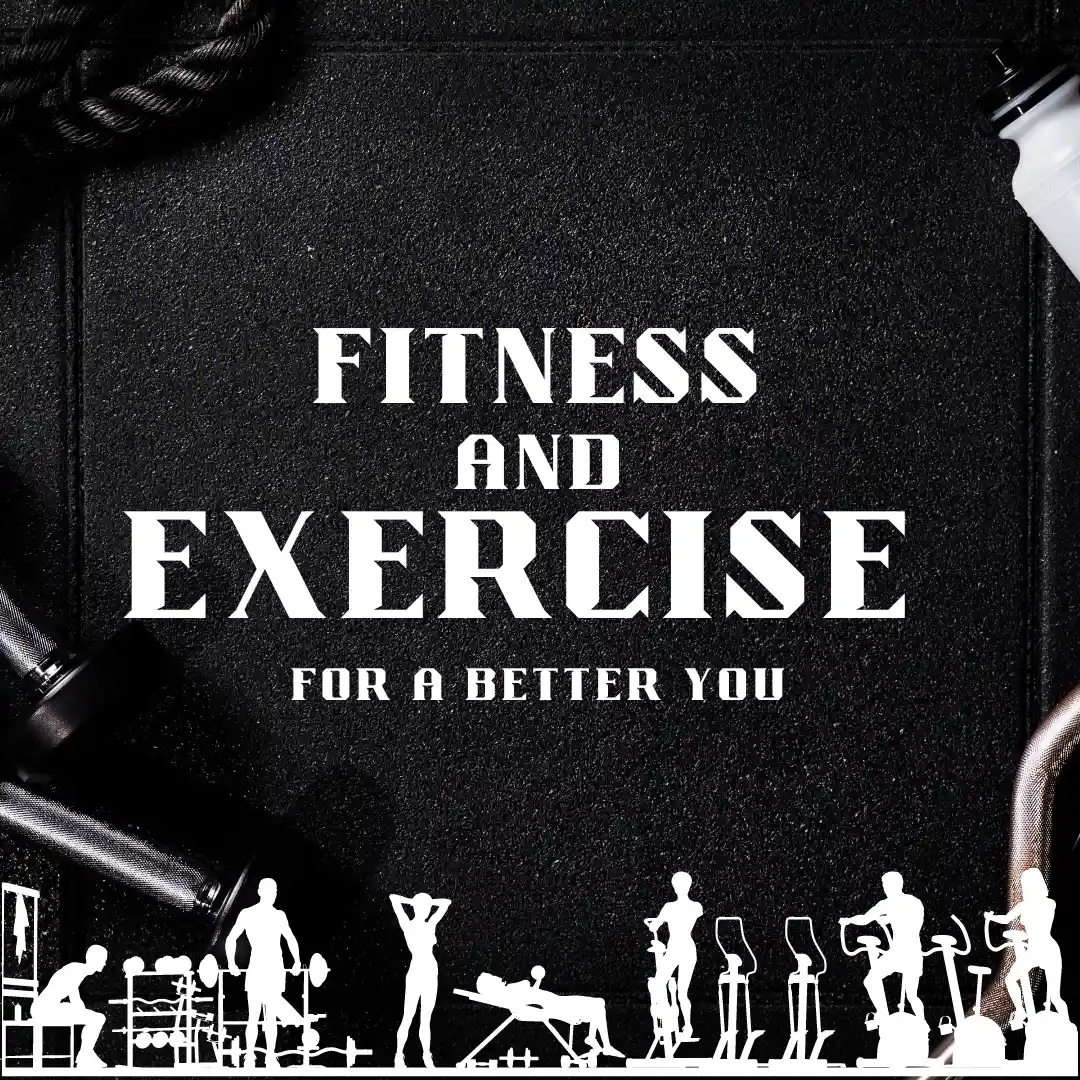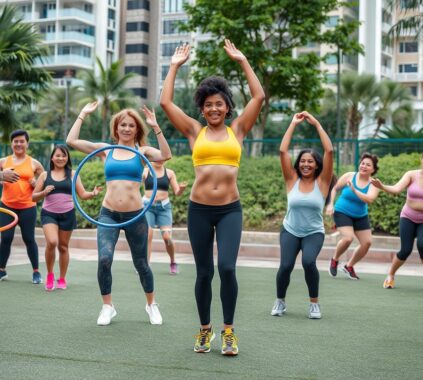In today’s fast-paced world, maintaining a healthy lifestyle can be challenging. However, incorporating fitness and exercise into your daily routine can unlock your potential and lead to a better, more fulfilling life. This comprehensive guide will explore various aspects of fitness and exercise, providing you with the knowledge and motivation to embark on your journey towards a healthier you.
Understanding the Importance of Fitness and Exercise
Why Fitness and Exercise Matter
Fitness and exercise are crucial for maintaining overall health and well-being. Regular physical activity helps improve cardiovascular health, strengthen muscles, enhance flexibility, and boost mental health. It also plays a significant role in preventing chronic diseases such as obesity, diabetes, and heart disease. By prioritizing fitness and exercise, you can improve your quality of life and increase your longevity.
The Benefits of Regular Exercise
Engaging in regular exercise offers numerous benefits, including:
- Improved Physical Health: Exercise helps maintain a healthy weight, reduces the risk of chronic diseases, and enhances physical strength and endurance.
- Mental Well-being: Physical activity releases endorphins, which are natural mood lifters. It can reduce stress, anxiety, and depression, promoting a positive mental state.
- Increased Energy Levels: Regular exercise boosts energy levels by improving cardiovascular efficiency and enhancing muscle strength.
- Better Sleep: Exercise can help regulate sleep patterns, leading to better quality sleep and improved overall rest.
- Enhanced Cognitive Function: Physical activity has been shown to improve memory, concentration, and overall cognitive function.
Creating a Personalized Fitness Plan
Setting Realistic Goals
Before starting any fitness regimen, it’s essential to set realistic and achievable goals. Consider your current fitness level, lifestyle, and any specific health concerns. Setting SMART goals (Specific, Measurable, Achievable, Relevant, Time-bound) can help you stay focused and motivated. For example, instead of aiming to “get fit,” set a goal to “run 5 kilometers in 30 minutes within three months.”
Choosing the Right Exercise Routine
Selecting the right exercise routine is crucial for maintaining motivation and achieving your fitness goals. Here are some popular types of exercise to consider:
Cardiovascular Exercise
Cardiovascular exercise, also known as aerobic exercise, includes activities that increase your heart rate and breathing. Examples include running, cycling, swimming, and dancing. These exercises improve cardiovascular health, burn calories, and enhance endurance.
Strength Training
Strength training involves using resistance to build and strengthen muscles. This can be done using free weights, resistance bands, or bodyweight exercises like push-ups and squats. Strength training helps increase muscle mass, boost metabolism, and improve bone density.
Flexibility and Balance Exercises
Flexibility and balance exercises, such as yoga and Pilates, focus on improving the range of motion, stability, and overall body control. These exercises can help prevent injuries, reduce muscle stiffness, and enhance overall physical performance.
High-Intensity Interval Training (HIIT)
HIIT involves short bursts of intense exercise followed by brief periods of rest or low-intensity activity. This type of workout is efficient and effective for burning calories, improving cardiovascular health, and building strength.
Creating a Balanced Workout Schedule
A balanced workout schedule should include a mix of cardiovascular exercise, strength training, and flexibility exercises. Aim for at least 150 minutes of moderate-intensity aerobic activity or 75 minutes of vigorous-intensity aerobic activity per week, along with muscle-strengthening activities on two or more days per week. Incorporate rest days to allow your body to recover and prevent overtraining.
Nutrition and Hydration: Fueling Your Fitness Journey
The Role of Nutrition in Fitness
Proper nutrition is essential for fueling your body and supporting your fitness goals. A balanced diet provides the necessary nutrients, vitamins, and minerals to sustain energy levels, promote muscle recovery, and enhance overall performance. Here are some key nutritional components to consider:
Macronutrients
- Carbohydrates: Carbohydrates are the primary source of energy for your body. Include complex carbohydrates such as whole grains, fruits, and vegetables in your diet to provide sustained energy.
- Proteins: Proteins are essential for muscle repair and growth. Incorporate lean protein sources such as chicken, fish, beans, and legumes into your meals.
- Fats: Healthy fats, such as those found in avocados, nuts, and olive oil, are crucial for hormone production and overall health. Avoid trans fats and limit saturated fats.
Micronutrients
- Vitamins and Minerals: Vitamins and minerals play a vital role in various bodily functions, including energy production, immune support, and bone health. Ensure a diverse diet rich in fruits, vegetables, and whole foods to meet your micronutrient needs.
Hydration: The Key to Optimal Performance
Staying hydrated is essential for maintaining peak physical performance and overall health. Water regulates body temperature, lubricates joints, and transports nutrients. Aim to drink at least 8-10 glasses of water per day, and increase your intake during exercise or hot weather. Consider electrolyte-rich beverages for intense workouts to replenish lost minerals.
Staying Motivated and Overcoming Challenges
Finding Your Motivation
Staying motivated is crucial for maintaining a consistent fitness routine. Here are some tips to help you stay on track:
- Set Clear Goals: Having specific, achievable goals can keep you focused and motivated.
- Track Your Progress: Use a fitness journal or app to monitor your progress and celebrate your achievements.
- Find a Workout Buddy: Exercising with a friend can make workouts more enjoyable and hold you accountable.
- Mix It Up: Vary your workouts to prevent boredom and keep things interesting.
- Reward Yourself: Treat yourself to small rewards for reaching milestones to stay motivated.
Overcoming Common Challenges
It’s normal to face challenges on your fitness journey. Here are some common obstacles and how to overcome them:
- Lack of Time: Prioritize your workouts by scheduling them into your daily routine. Even short, high-intensity workouts can be effective.
- Plateaus: If you hit a plateau, try changing your workout routine or increasing the intensity to challenge your body.
- Injuries: Listen to your body and avoid pushing through pain. Seek professional advice if you experience persistent discomfort.
- Lack of Motivation: Revisit your goals, find new sources of inspiration, and remind yourself of the benefits of regular exercise.
The Mental and Emotional Benefits of Exercise
Boosting Mental Health
Exercise has a profound impact on mental health. Physical activity releases endorphins, which are natural mood lifters. It can reduce symptoms of depression, anxiety, and stress, promoting a positive mental state. Regular exercise also improves sleep quality, which is essential for mental well-being.
Building Confidence and Self-Esteem
Achieving fitness goals can significantly boost your confidence and self-esteem. As you see progress in your physical abilities and appearance, you’ll feel a sense of accomplishment and pride. This newfound confidence can positively impact other areas of your life, including work, relationships, and personal growth.
Enhancing Cognitive Function
Physical activity has been shown to improve cognitive function, including memory, concentration, and problem-solving skills. Exercise increases blood flow to the brain, promoting the growth of new neurons and enhancing overall brain health. Incorporating regular exercise into your routine can help you stay sharp and focused.
Incorporating Fitness into Your Daily Routine
Making Exercise a Habit
Incorporating fitness into your daily routine requires consistency and commitment. Here are some tips to help you make exercise a habit:
- Start Small: Begin with manageable workouts and gradually increase the intensity and duration.
- Schedule Workouts: Treat your workouts like appointments and schedule them into your calendar.
- Find Activities You Enjoy: Choose exercises that you find enjoyable to make workouts feel less like a chore.
- Stay Consistent: Consistency is key to forming a habit. Aim to exercise at the same time each day to establish a routine.
- Be Patient: Building a fitness habit takes time. Be patient with yourself and stay committed to your goals.
Incorporating Physical Activity into Daily Life
In addition to structured workouts, find ways to incorporate physical activity into your daily life. Here are some ideas:
- Take the Stairs: Opt for stairs instead of elevators or escalators.
- Walk or Bike: Choose walking or biking over driving for short distances.
- Active Breaks: Take short breaks throughout the day to stretch or walk around.
- Household Chores: Engage in activities like gardening, cleaning, or yard work to stay active.
- Play with Kids or Pets: Spend time playing with your children or pets to get moving and have fun.
Conclusion
Unlocking your potential through fitness and exercise is a journey that requires dedication, consistency, and a positive mindset. By understanding the importance of physical activity, creating a personalized fitness plan, prioritizing nutrition and hydration, staying motivated, and incorporating exercise into your daily routine, you can achieve a healthier, happier, and more fulfilling life. Remember, the key to success is to stay committed to your goals and enjoy the process of becoming a better you.
FAQs
1. How often should I exercise to see results?
To see results, aim for at least 150 minutes of moderate-intensity aerobic activity or 75 minutes of vigorous-intensity aerobic activity per week, along with muscle-strengthening activities on two or more days per week.
2. What are the best exercises for beginners?
For beginners, start with low-impact exercises such as walking, swimming, or cycling. Gradually incorporate strength training and flexibility exercises like yoga or Pilates.
3. How can I stay motivated to exercise regularly?
Set clear goals, track your progress, find a workout buddy, mix up your workouts, and reward yourself for reaching milestones to stay motivated.
4. What should I eat before and after a workout?
Before a workout, eat a balanced meal with carbohydrates and protein. After a workout, refuel with a combination of protein and carbohydrates to aid muscle recovery.
5. How can I prevent injuries during exercise?
To prevent injuries, warm up before exercising, use proper form, start with low-intensity workouts, and gradually increase intensity. Listen to your body and avoid pushing through pain.
6. Can exercise help with weight loss?
Yes, regular exercise combined with a healthy diet can help with weight loss by burning calories, building muscle, and boosting metabolism.
7. How important is hydration during exercise?
Hydration is crucial during exercise to regulate body temperature, lubricate joints, and transport nutrients. Aim to drink at least 8-10 glasses of water per day and increase intake during workouts.
8. What are the mental health benefits of exercise?
Exercise releases endorphins, which improve mood and reduce symptoms of depression, anxiety, and stress. It also enhances sleep quality and cognitive function.
9. How can I incorporate exercise into a busy schedule?
Prioritize workouts by scheduling them into your daily routine, opt for short, high-intensity workouts, and find ways to incorporate physical activity into daily tasks.
10. What are some effective strength training exercises?
Effective strength training exercises include squats, push-ups, lunges, deadlifts, and bench presses. Use free weights, resistance bands, or bodyweight exercises to build muscle.



















